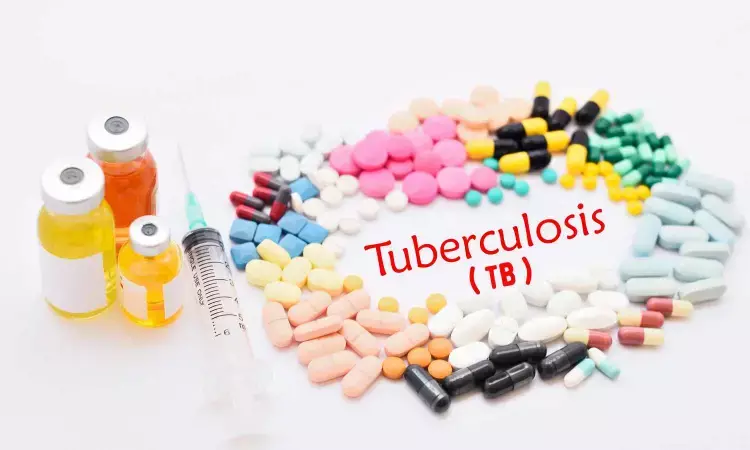- Home
- Medical news & Guidelines
- Anesthesiology
- Cardiology and CTVS
- Critical Care
- Dentistry
- Dermatology
- Diabetes and Endocrinology
- ENT
- Gastroenterology
- Medicine
- Nephrology
- Neurology
- Obstretics-Gynaecology
- Oncology
- Ophthalmology
- Orthopaedics
- Pediatrics-Neonatology
- Psychiatry
- Pulmonology
- Radiology
- Surgery
- Urology
- Laboratory Medicine
- Diet
- Nursing
- Paramedical
- Physiotherapy
- Health news
- Fact Check
- Bone Health Fact Check
- Brain Health Fact Check
- Cancer Related Fact Check
- Child Care Fact Check
- Dental and oral health fact check
- Diabetes and metabolic health fact check
- Diet and Nutrition Fact Check
- Eye and ENT Care Fact Check
- Fitness fact check
- Gut health fact check
- Heart health fact check
- Kidney health fact check
- Medical education fact check
- Men's health fact check
- Respiratory fact check
- Skin and hair care fact check
- Vaccine and Immunization fact check
- Women's health fact check
- AYUSH
- State News
- Andaman and Nicobar Islands
- Andhra Pradesh
- Arunachal Pradesh
- Assam
- Bihar
- Chandigarh
- Chattisgarh
- Dadra and Nagar Haveli
- Daman and Diu
- Delhi
- Goa
- Gujarat
- Haryana
- Himachal Pradesh
- Jammu & Kashmir
- Jharkhand
- Karnataka
- Kerala
- Ladakh
- Lakshadweep
- Madhya Pradesh
- Maharashtra
- Manipur
- Meghalaya
- Mizoram
- Nagaland
- Odisha
- Puducherry
- Punjab
- Rajasthan
- Sikkim
- Tamil Nadu
- Telangana
- Tripura
- Uttar Pradesh
- Uttrakhand
- West Bengal
- Medical Education
- Industry
51 per cent with pre-XDR TB, 15.5 per cent with MDR-TB cases :HaystackAnalytics report

Mumbai: Tuberculosis stands as the second leading infectious disease killer globally, with over 2.95 million active cases reported in 2020 alone in India.
Among these cases, 135,000 were classified as multidrug resistant TB cases, highlighting the significant challenge posed by drug-resistant strains to the efficacy of treatment and control measures. HaystackAnalytics, a pioneer in genomics diagnostic solutions, in collaboration with Dr. D.Y. Patil Medical College, Pune, today released a comprehensive study shedding new light on tuberculosis (TB) dynamics in India.
Also Read:Karnataka Health Minister writes to Centre seeking supply of anti-TB drugs
The study is based on real-world data on the TB drug-resistance profile by whole-genome sequencing of 600 clinical samples from patients with TB in India. This study indicates the clinicians’ reasons for sending samples for WGS, which is for difficult-to-treat cases and/or relapse and treatment failure.
Key findings of the study include:
● In presumptive MDR- TB cases, Whole Genome Sequencing revealed that pre-extensively drug-resistant TB (pre-XDR-TB) was present in 50.83% of cases, while MDR-TB was found in 15.5%, with nearly equivalent proportions among men and women
● The findings highlighted resistance not only to rifampicin, a drug used to manage and treat diverse mycobacterial infections, and isoniazid, an antibiotic indicated in the first-line treatment of active Mycobacterium tuberculosis (TB) infection, but also to fluoroquinolones, which is used widely as therapy for respiratory and urinary tract infections.
● The predominant lineage was the Beijing genotype (39.5%) followed by Delhi-CAS (36.66%) and EAI (14.50%)
● 55% in the age group from 15-35 years and 67% in the age group up to 14 years had pre-XDR TB
Prioritizing the utilization of advanced technologies like whole genome sequencing, Dr. Anirvan Chatterjee, CEO and Co-founder at HaystackAnalytics and a contributor to this study, said “India bears 27% of the total TB cases in the world, according to the Global TB Report 2023 by WHO.
Furthermore, understanding the genetic lineages, particularly the predominance of the Beijing genotype, followed by Delhi-CAS and EAI, is crucial for developing targeted interventions and treatment strategies. When anti-TB therapy is given in the absence of a complete drug resistance profile, such a therapy may contain one or more drugs to which the patient is resistant to, and could compromise the outcome of the therapy.
The study highlights the increasing use and adoption of Whole Genome Sequencing by doctors and clinicians for accurate diagnostics and personalized treatment approaches and policy intervention in tackling drug-resistant TB. This further creates scope to educate healthcare professionals and patients on the rational utilization of advanced technologies and appropriate TB treatment practices.
This includes the need of utilizing diagnostic technologies like CBNAAT and whole genome sequencing, amidst emerging resistance to newer drugs like bedaquiline. These insights serve to inform policymakers, healthcare providers, and the public about critical issues in TB treatment and drug resistance, aiming to enhance TB control efforts and combat the burden of the disease.
Also Read:India TB Report-2024: 16 percent decline in new cases since 2015
Kajal Rajput joined Medical Dialogues as an Correspondent for the Latest Health News Section in 2019. She holds a Bachelor's degree in Arts from University of Delhi. She manly covers all the updates in health news, hospitals, doctors news, government policies and Health Ministry. She can be contacted at editorial@medicaldialogues.in Contact no. 011-43720751


